Iran To Establish Nuclear Schools To Train Over 30k Scientists
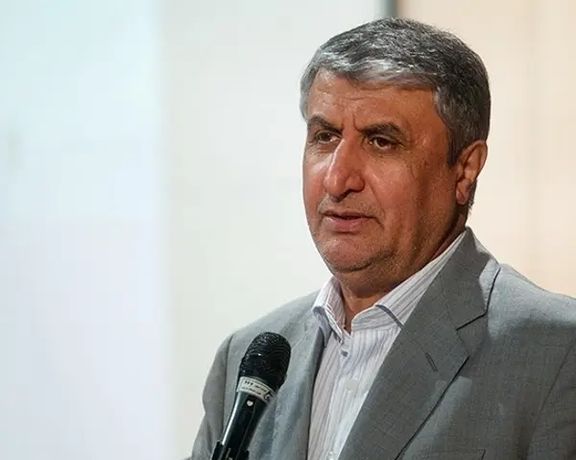
The head of the Atomic Energy Organization of Iran (AEOI) says "at least 30,000 specialized personnel" should be trained only in the nuclear power plant sector in the next 20 years.

The head of the Atomic Energy Organization of Iran (AEOI) says "at least 30,000 specialized personnel" should be trained only in the nuclear power plant sector in the next 20 years.
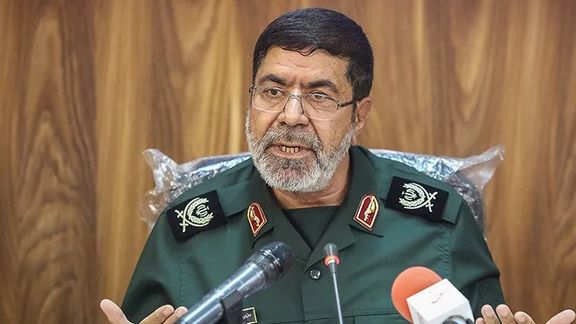
The spokesman for Iran’s Revolutionary Guard (IRGC) has rejected speculations that Israel or any other country has infiltrated the IRGC and its intelligence apparatus.
Referring to several mysterious killings of IRGC officers in recent months, Brigadier General Ramezan Sharif said on Saturday that the assassinations do not indicate the power of Israel, emphasizing that the Islamic Republic has responded and will continue to respond to their hostile acts.
Referring to the May 22 assassination of Hassan Sayyad in Tehran -- who was in charge of some IRGC operations abroad -- he said that the assassination of an officer in Tehran is not an unimportant issue, but it shows that the Revolutionary Guards do not live separated from the ordinary people.
“The Israelis are extremely vulnerable and live in fear all the time. They repeat that they have the Iron Dome (air defense system) or cyber (systems), which shows their weakness,” he added, noting that they have resorted to psychological warfare due to their failures in the field.
"The Zionist regime is experiencing the worst security condition and is under intense pressure," he said, adding that "Their (Israelis) measures have no impact on the Islamic Republic at all because they are unable to confront Iran."
Following repeated incidents indicating widespread Israeli infiltration in its intelligence and security networks, Iran’s IRGC admitted in June that its counter-intelligence was targeted.
Earlier in June, Hossein Ta’eb, the long-serving head of the Revolutionary Guard’s Intelligence organization (SAS in Persian acronym) was replaced followed by other personnel changes at the top.
The change considered to be a pivotal move by Supreme Leader Ali Khamenei came after a series of unexplained deadly attacks against IRGC officers and other breaches of security in Iran’s nuclear and military installations.
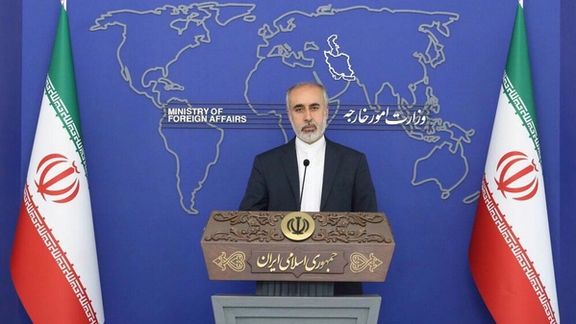
Iran’s Foreign Ministry says all mosques in the world will remain the center of struggle against Israel until the complete liberation of Palestine.
In a tweet on the occasion of the anniversary of the fire at Jerusalem's Al-Aqsa Mosque -- known to Jews as the Temple Mount – 53 years ago, foreign ministry spokesperson Nasser Kanaani said “the Zionists set fire to the Aqsa Mosque... and this was not their first and last crime by occupiers of Palestine.”
"Resistance is the only way to save Palestine, and al-Aqsa Mosque and all mosques in the world will remain the center of anti-Zionist resistance until the complete liberation of Palestine,” he said.
The arson attack on the al-Aqsa Mosque was carried out on August 21, 1969 by Australian citizen Denis Michael Rohan, who initially set fire to the pulpit. Initially, Israelis blamed the fire either on an accident related to ongoing renovations, or to a false flag attack by Palestinian group Fatah. The fire has been described as one of the most destabilizing incidents in the Middle East.
On Saturday, the commander of the Revolutionary Guard (IRGC) Hossein Salami said the war between Israel and Palestinians is not limited to Gaza and has expanded to the West Bank, claiming that many Israelis have been killed in operations by “resistance groups inside the occupied territories,” in the past several months. He added that the number of Israelis killed is significantly higher than the previous year.
The Jerusalem Post also claimed Saturday that Tehran “believes time is on its side” to “erode Israel’s power slowly” by unifying and arming Palestinian groups.
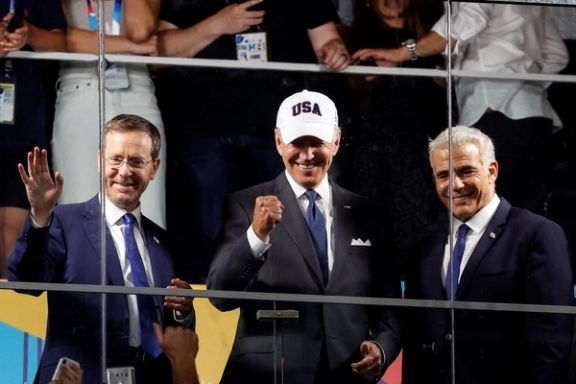
As optimism about a nuclear deal with the West takes hold in Iran, its battered currency has risen by around 15 percent in August, which can help with inflation.
The US dollar has dropped from a high of 330,000 rials in June to around 280,000 in Tehran’s exchange market as of Sunday morning local time. That could help prevent a faster rise in the annual inflation rate, which stands at 54 percent, with food prices having risen by more than 100 percent in the past year.
The small but important reprieve from economic pressure, however, can reverse itself if negative signs emerge that the nuclear talks have hit a snag.
Statements and leaks by Iranian officials of having gained big concessions from the United States have fueled a sense of certainty that most important issues have been resolved in the talks.
At the same, time the Israeli Walla News reported on Saturday that Biden Administration officials have told Israel’s leaders a new deal “is not imminent” and Washington has not made any new concessions to Tehran.
However, the report said that Israeli officials, who in recent days had called for an end to talks, have not been convinced by US assurances.
“We may be closer to a deal than we were two weeks ago, but there are still uncertainties about a resolution and differences remain with the Iranians,” an unnamed US official told the site. “At any rate, the signing of a nuclear deal is not expected in the immediate timeframe.”
In fact, Iran is waiting for the US to send a response to the European Union regarding Iran’s position passed on to the EU on August 15. Observers were expecting the US response on Friday, but so far it is not clear when Washington will formally send an answer.
In the meantime, a leak from Tehran attributed details of “US concessions” to Iran’s top negotiator Ali Bagheri-Kani from a closed-door briefing with local reporters. It is not clear if the leak was meant to influence US politics regarding the nuclear deal or was to assure domestic audiences that Iran won in the negotiations.
The ultra-conservative Kayhan newspaper in Tehran, affiliated with Supreme Leader Ali Khamenei published a lead article on Sunday urging Iran’s negotiators not to give in the “America’s bluffs”. The paper claimed that the economic situation is so bad in Europe and the United States that they are the ones who need the nuclear deal.
At the same time, the government official news website IRNA on Sunday cited an International Monetary Fund report, saying that Iran’s available foreign currency reserves have risen from $21 billion in 2021 to $41 billion so far.
In fact, Iran’s economic crisis is far from being resolved, despite more clandestine oil exports starting from late 2020 and higher oil prices since the invasion of Ukraine.
A government official speaking on financial hardship to meet salary and pension increases promised to the population said that Iran’s estimated budget deficit would be 3,250 trillion rials until March 2023. Depending on the exchange rates, this could range from $13 billion to as much as $18 billion, but the important fact is that it constitutes around 30 percent of the budget.
The parliament’s research center estimated in December that the budget deficit for 2022 would be “between 3,000 and 6,000 trillion rials.”
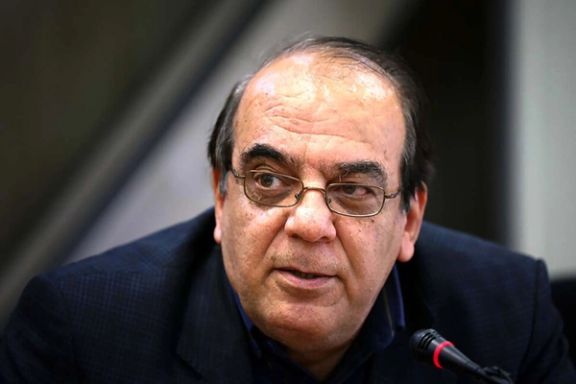
Iranian 'Reformists' have reacted negatively to one of their own for suggesting that nuclear weapons might be good for Iran, but one analyst says it is food for thought.
Centrist commentator Saeed Laylaz’s statements in 'reformist' daily Etemad on August 17, stirred controversy as expected. He seemed to justify Tehran’s alleged move to build nuclear bombs. He said in the interview: “"Peace comes out of gun barrels, not out of agreements," adding that "the knowhow of making nuclear bombs is Iran's geopolitical shield."
Meanwhile, Laylaz ruled out a possible agreement with the United States saying that "all possible achievements of an agreement about the revival of the 2015 nuclear deal would be temporary."
Laylaz also argued that Iran needed good governance and a campaign against corruption to solve its economic crisis, hinting that a nuclear deal and lifting of US sanctions are not magic wands.
Already expecting a controversy, the daily had added a rare disclaimer. Within hours, ‘reformist’ figures raised their voices that Laylaz was not speaking for them. “Mainstream reformists in Iran disagree with Laylaz and believe in an agreement,” said former deputy foreign minister Mohsen Aminzadeh.
Meanwhile, several social media activists charged that Laylaz was appeasing Iran’s Supreme Leader Ali Khamenei following a previous blunder involving an interview published in April 2021 in which apparently Laylaz cornered former Foreign Minister Javad Zarif to reveal Russia’s influence on the revolutionary guards, the IRGC.
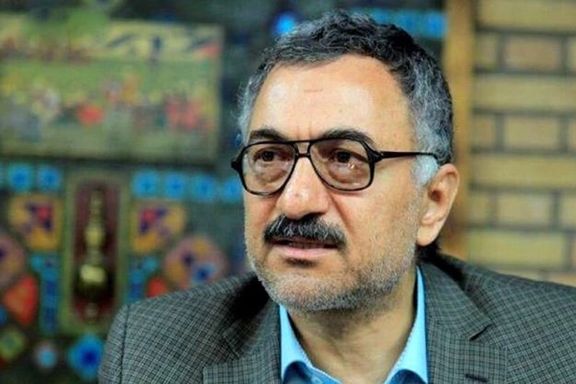
Others noted that justifying Iran’s interest in nuclear bombs would have been okay if the comment was made by a conservative figure. They argued that Laylaz was playing according to the rules of the game that were set by Iran’s hardliners.
Conspicuously, while other reformists criticised Laylaz, his own proreform Party, the Executives of Construction, has so far remained silent.
It is still not clear whether Laylaz made the comments on behalf of the party where he is a member of the political bureau or he was speaking for himself.
Prominent reformist figure Abbas Abdi addressed Iran's reformists in a commentary published by Etemad Online. "A political group with self-confidence should not be afraid of comments that are different from the party line," Abdi said, and added that even if reformists disagree with Laylaz, they should welcome his comments rather than undermine them.
He also argued that Laylaz is an analyst not a man with political power. So, reformists should read his comments and think about them. However, he admitted that laylaz's analysis was characteristically controversial. He also criticized Laylaz for being insistent in issuing recommendations. "An analysis should make you think rather than suggest it is offering a remedy for all maladies,"said Abdi. "Assertiveness is good for a politician, but not for an analyst."
However, Abdi said that reformists comments about Laylaz's statements are regrettable. He accused Iran's reformists of failing to understand the true message of those statements, which was "Analysts should not try to simplify the Iran-US relations. These are not relations that are influenced by individuals. They are the products of a geopolitical situation."
They also ignored Laylaz's key message about Iran's domestic politics, Abdi argued: "Iran's main problem is not the JCPOA, it is one of lack of good governance and campaign against corruption,” and that was also an important message Laylaz tried to convey..
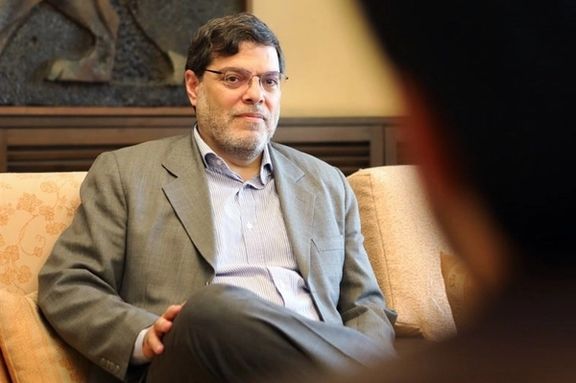
Mohammad Marandi, who acts as de facto spokesman for Iran's nuclear negotiating team, claims that removing Revolutionary Guard form the US terrorism designation was never a key demand for Tehran.
Marandi said in a tweet on Saturday that “I've often said over the past few months that removing the Guards from the US Foreign Terrorist Organization list was never a precondition or key demand.”
“Iran will simply keep CENTCOM on its terror list. But if the US needs to say this to sell the deal, that's their business,” he added.
Marandi’s comment came while talks to revive the JCPOA in Vienna came to an abrupt stop in March, reportedly for Iran’s insistence that the IRGC be removed for the US list of Foreign Terrorist Organizations (FTO).
Marandi, who has been advisor-cum-spokesman for Tehran’s negotiators, made the remarks after a leak quoted Iran's chief nuclear negotiator Ali Bagheri-Kani presenting a detailed list of "concessions" Iran claims to have received from the US, but removing the IRGC terrorist designation was not included in the list. Bagheri-Kani was quoted as saying that the IRGC Issue will be discussed at a later stage with the US.
However, according to the same leak, the US is willing to guarantee that its sanctions against IRGC would not affect other sectors and firms, including companies dealing or affiliated with the military force.
During his address to the Iranian education sector's directors in Tehran on Sunday, Mohammad Eslami said that in accordance with the country’s roadmap for the expansion of its nuclear industry, the AEOI has decided to establish schools in the cities with nuclear facilities, from the elementary school level, to start training nuclear scientists for the next generation of the country’s nuclear program.
Eslami also claimed, “Everyone should know that the nuclear fuel cycle is a power-generating one, and has nothing to do with building a bomb,” adding that the West levels “spurious allegations against Iran and wrongfully accuses us of attempts to produce a nuclear bomb only because they do not want us to acquire nuclear technology.”
“Despite fierce opposition expressed in recent years to Iran’s heavy water production, we have managed to build on our relevant expertise both in the atomic industry and molecular sector,” he added.
Late in July, Eslami said members of parliament are seeking to legislate a 50-year nuclear roadmap so change of administrations cannot influence the program.
Around the same time, two Telegram channels with links to Iran’s Revolutionary Guard suggested that “Iran may if attacked by the US or Israel.
Iran has now enriched enough uranium to 60 percent that if further enriched to 90 percent, the fissile material will be sufficient for a nuclear bomb within a few weeks.